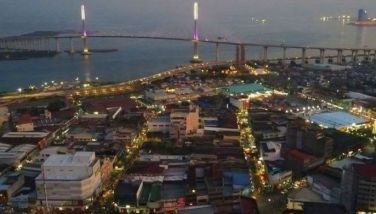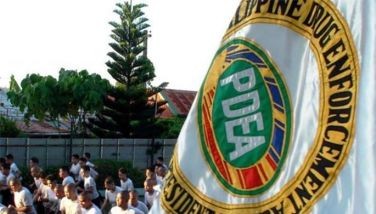Cebu officials discuss means to fight drugs
CEBU, Philippines - Creation of a database in every local government units for the implementation of a community-based program to prevent corruption, illegal drugs and criminality in the barangays, and establishment of drug rehabilitation centers in “cooler” places in Cebu to help fully rehabilitate drug surrenderers.
These were the recommendations of Department of Interior and Local Government Assistant Secretary for External and Legislative Affairs Ricojudge Janvier Echiverri to Cebu officials and government agencies as keynote speaker of yesterday’s Cebu Provincial Anti-Drug Alliance Summit.
The summit was attended by around 650 participants from the Philippine National Police, local chief executives and representatives from various government offices.
Echiverri, who represented DILG Secretary Ismael Sueno during the summit, pointed out the advantage of data banking as a strong mechanism to combat the proliferation of illegal activities and adds that it is important for every LGU to have this.
“If each LGU — barangay, municipal, city and provincial would have their own database or data banking of all cellphones of all their constituents you’ll be getting the right information because MasaMasid is involvement of community. The best way to reach your constituents is through cellphone,” he said.
Cebu Provincial Police Office Director Eric Noble, in his part, testified to the efficacy of cellphone and social media in their fight against illegal drugs, citing that he has been receiving reports of police officers involved in illegal drugs as well as the whereabouts of drug personalities in the province through these.
“I-add ‘nyoakosa Facebook para ma-ireport ‘nyo sino pang mga police ang nagsusuyop at iba pang illegal activities sa inyong mga lungsod,” he said.
Echiverri, who is in charge of drug rehab programs for Luzon, also said that for establishing rehabilitation centers, Cebu has to find a place with cooler temperatures which is beneficial to the drug surrenderers’ fast recovery.
“For Cebu and Visayas areas, huwag nyo’ng dalhin sa mainit na lugar. Magiging maligalig ang mga adik and they won’t be rehabilitated at all. Just imagine kung naiinitan sila diba medyo restless. So you have to find a place which is cool for them to be properly rehabilitated and should be conducive. Kasika pag nag-initan yan erratic sila,” he said.
Executive Order No. 4 signed by President Rodrigo Duterte on Oct. 11 stipulates that each province must have one rehabilitation center.
At present, the Philippines only has a total of 16 centers serving 81 provinces.
It also cited the policy of the state to provide effective mechanisms or measures for individuals who had fallen victim to drug abuse or dangerous drug dependencefor reintegration into society through sustainable programs of treatment and rehabilitation.
Echiverri also urged the public to help protect Cebu from illegal drugs, saying Cebu is the best tourism of the Philippines.
"If there's tourism, there's possibility of drugs coming in and out of the province. Please protect Cebu. You should be part of this fight. And I hope you do this personally. The need to solve this problem quickly and effectively cannot be over-emphasized,” he said.
Philippine Drug Enforcement Agency-7 Director Yogi Felimon Ruiz, said that it is not PDEA, police and other law enforcement agencies that are the best weapon to fight against illegal drugs, but rather, it’s the family.
“The fighting unit is the family and the best weapon is the table,” said Ruiz.
Ivy Carmen Durano-Meca, Executive Director of the Cebu Provincial Anti-Drug Abuse Office, also asked the public to work hand in hand with the government to stop the proliferation of illegal drugs.
“The fight against illegal drugs is not a matter of choice. It is a must, if we are to leave behind a just and livable society for this and future generations. Neither is it a stand-alone action that diminishes the importance of our war against poverty and inequality,” she said.
In Cebu, out of 1,066 barangays in the entire province, 94 percent are affected by illegal drug activities, 14 of these barangays are labeled as seriously affected.
Data from the Cebu Provincial Police Office, as of Nov. 17, showed a total of 34,255 surrenderers, composed of 31,939 users and 2,316 pushers.
Meca said they are into strengthening of local and barangay-based institutions, like the Local Peace and Order, and Barangay Anti-Drug Abuse Councils; and, harnessing the participation of community and church-based organizations, like the Ugnayanng Barangay at Simbahan (UBAS), and civil society, non-government, and people's organizations.
She recognized the participation of different sectors in solving illegal drugs. “We also believe that the drive against illegal drugs, criminality and corruption will not succeed without LGUs, communities and national government working together.” (FREEMAN)
- Latest























